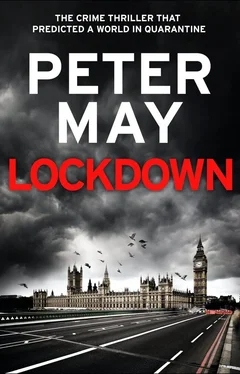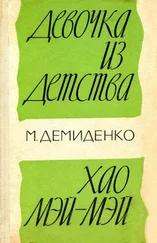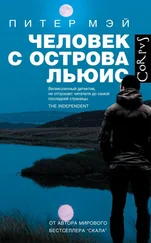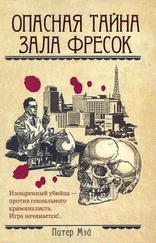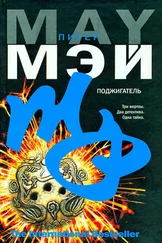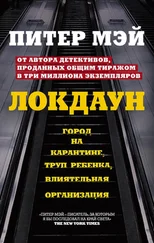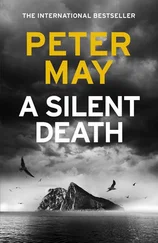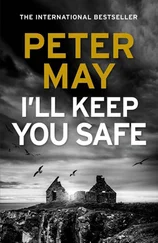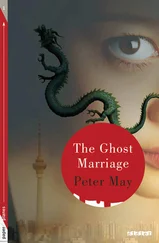‘This is the worst flu virus I have ever seen...
there will be no place for any of us to hide.’
Robert Webster
Virologist
St. Jude Children’s Research Hospital
Memphis, Tennessee, USA
In 2005 when I was finding it impossible to secure a publisher for either The Blackhouse or my first Enzo book, Extraordinary People , I started researching a crime novel set against the backdrop of a bird flu pandemic.
Bird flu, or H5N1, was being predicted by scientists at the time as the likely next flu pandemic. In 1918, the Spanish Flu had killed anywhere between twenty and fifty million people worldwide, and bird flu — with a mortality rate of sixty per cent or higher — was being forecast to exceed that by a wide margin.
Having done a considerable amount of research into the Spanish Flu for Snakehead , one of my China Thrillers, it was a topic in which I was already well versed. But none of that prepared me for what my research on H5N1 would turn up, and the horrors that a bird flu pandemic could unleash on the world.
I began looking into the chaos it would inflict, and how society as we know it could rapidly start to disintegrate. I chose London as my setting, the epicentre of the pandemic, and a city in total lockdown. Against this background, the rendered bones of a murdered child are uncovered on a building site where workmen are feverishly constructing an emergency hospital. My detective, Jack MacNeil, is told to investigate, even as his own family is touched by the virus.
During a six-week spell of burning the midnight oil I wrote Lockdown . It was never published. British editors at the time thought my portrayal of London under siege by the invisible enemy of H5N1 was unrealistic and could never happen — in spite of the fact that all my research showed that, really, it could. Then an American publisher bought the Enzo series, and my China Thrillers were published for the first time in the States. My focus shifted to the other side of the Atlantic, and Lockdown was consigned to a folder in my Dropbox, where it has remained. Until now.
As I write this, I am hunkered down at home in France, forbidden to leave my house except in exceptional circumstances. A new coronavirus, Covid-19, is ravaging the world, and society as we know it is rapidly disintegrating. Even with its mortality rate being just a fraction of bird flu, politicians are having to fight to control the chaos and panic that Covid-19 is spreading worldwide. The parallels with Lockdown are terrifying. So this seemed like the moment to open up that dusty Dropbox folder and dig out that old manuscript to share with my readers — if only to make us all realise just how much worse things could actually be.
Peter May
France 2020
Her scream echoes through the dark, squeezed through a throat constricted by fear. It quivers with the terror she feels, and would make the hairs stand up on the arms and shoulders and neck of any caring mortal. But the thick walls of this old house wrap themselves around the horror of the night, to ensure that the only ears to hear her are deaf to her plight.
He curses and hisses and spits in the dark, angry and frustrated. She can hear him on the stairs, and knows that he means her harm. The man she has known and trusted, even loved. She is drowning in her own incomprehension. How is it possible? She remembers the cool touch of his hand on her fevered brow during those long, tortured days of sickness. The pity in his eyes. Eyes which burn now with anger and malice.
She holds her breath. He has gone up another flight. He thinks she is on the top floor, and she slips from the study and sees his shadow on the stairs as he heads up to the attic rooms. And she turns and hurries down, small feet padding on thick carpet, to the light that falls through stained glass windows on to the floor of the hall. Desperate fingers grasp and pull the handle. But the door is locked. There is no way out.
She freezes as she hears him bellow at the top of the house. He knows he has missed her. For a moment she hesitates. The steps to the cellar lead from the bathroom below the staircase. But she understands that if she goes down there she will be trapped. There is only the old coal chute leading up to the alley between the houses, and tiny though she is, she is not small enough to squeeze through the gap.
The house shakes with his footsteps on the stairs and she turns in panic only to find herself confronted by a little girl. A ghost in a white nightshirt, short-cropped black hair, almond eyes wide and black, face etched in chalk. The sight of the child sends fear spiking through her like the stabbing blades of the knives that await her, before she realises she is recoiling from her own reflection. Unrecognisable, distorted by fear.
‘Choy!’ she hears him bellow in the stairwell, and remembers suddenly the woman who had first shown them around the house all those months ago. The false panel in the wall of the big dining room at the front. A room they have never used. A room which has simmered always in a sweltering darkness, daylight and lamplight shining in turns through the cracks around the edges of the blinds. The estate agent had shifted a small table to remove the panel and reveal the door behind it. An old, white-painted door with a round handle which she had opened into the darkness beyond. The damp, cold, fusty darkness of a tiny brick room where a family of six had cowered in the blackout to hide from the bombs.
Choy had no idea what the lady had meant by ‘the Blitz’, but she had said that when the German bombers had finished over London they swung south again, and dropped their unused cargo on this hapless borough. And when the sirens went, people scurried like rats into their brick rat-traps to listen and wait and pray in the dark. Choy hears him scream her name again, and like the sirens of more than half a century before, it sends her scurrying for the front room.
Quickly she slides the table aside and fumbles to release the catches on the dark blue panel. It is heavy, and her tiny hands struggle to pry it loose. She can hear him on the first landing, then his footfall in the master bedroom above. She leans the panel to one side and pushes the door. It opens into blackness, and the cold, damp air wraps itself around her. She steps inside, and drags the panel back into place. She is unable to fasten it from the inside and can only pray that he will not see that. She shuts the door, and all light is extinguished. She hunkers down and wraps her arms around herself for warmth. It is so cold in here, so dark, so final. There is no way out. She cannot think how six people could squeeze themselves into this space. It is beyond her wildest imagination to know how it must have felt to hear the bombs falling all around and wonder if you might be next. But she needs no imagination to picture the man she hears now on the stairs, or the light catching the blade she knows he carries. The orphanage in Guangdong is a distant memory, the child she had been, another person in another life. So much has changed in only six months, yet still it has seemed an eternity, and that other life just the shadow of a dream.
Her breathing is shallow and rapid, and seems inordinately loud. But above it she can hear him in the front hall. Heavy footsteps on parquet flooring. The anger in his voice as he calls her name again. And then silence. A silence which stretches from moments to what seems like hours. She holds her breath now, for as long as she can, for she is sure he must hear it. Still the silence. And then she gasps as she hears the scraping of the panel on the other side of the door. Her heart beats so hard it feels like someone is punching her chest.
Читать дальше
